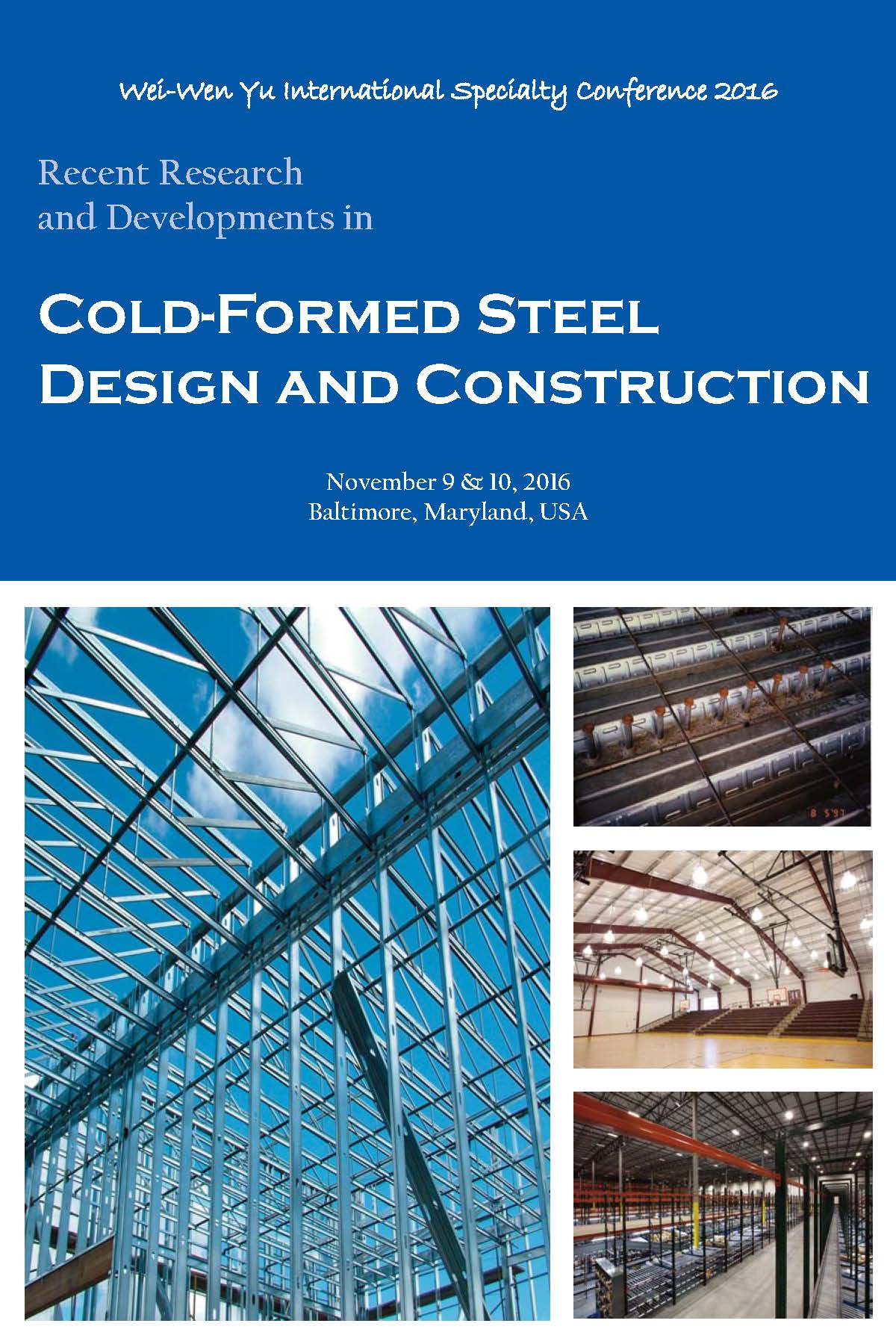Session Dates
10 Nov 2016
Abstract
Presented in this paper is an improved two-stage analysis procedure for evaluating the seismic load of the mid-rise buildings with vertical combination of cold-formed steel and concrete framing. By comparing the improved procedure to the one prescribed in ASCE 7, it is found the stiffness requirement of the two-stage analysis procedure stated in ASCE 7 may be over-relaxed, which may consequently result in the underestimation of the base shear of the upper structure in certain cases. Furthermore, the lateral load at the top storey of the upper structure evaluated by ASCE 7 two-stage analysis procedure may also be considerably underestimated. Therefore, an additional amount of lateral load is proposed to be applied to the top of the upper structure. The results of the improved and the existing ASCE 7 two-stage analysis procedures are compared to those of the elastic modal response spectrum analysis, respectively. Comparing to the one prescribed in ASCE 7, the proposed improved two-stage analysis procedure yields more accurate results.
Department(s)
Civil, Architectural and Environmental Engineering
Research Center/Lab(s)
Wei-Wen Yu Center for Cold-Formed Steel Structures
Meeting Name
International Specialty Conference on Cold-Formed Steel Structures 2016
Publisher
Missouri University of Science and Technology
Document Version
Final Version
Rights
© 2016 Missouri University of Science and Technology, All rights reserved.
Document Type
Article - Conference proceedings
File Type
text
Language
English
Recommended Citation
Yuan, X. and Xu, L., "An Improved Two-Stage Seismic Analysis Procedure for Mid-Rise Buildings with Vertical Combination of Cold-Formed Steel and Concrete Framing" (2016). CCFSS Proceedings of International Specialty Conference on Cold-Formed Steel Structures (1971 - 2018). 3.
https://scholarsmine.mst.edu/isccss/23iccfss/session11/3
An Improved Two-Stage Seismic Analysis Procedure for Mid-Rise Buildings with Vertical Combination of Cold-Formed Steel and Concrete Framing
Presented in this paper is an improved two-stage analysis procedure for evaluating the seismic load of the mid-rise buildings with vertical combination of cold-formed steel and concrete framing. By comparing the improved procedure to the one prescribed in ASCE 7, it is found the stiffness requirement of the two-stage analysis procedure stated in ASCE 7 may be over-relaxed, which may consequently result in the underestimation of the base shear of the upper structure in certain cases. Furthermore, the lateral load at the top storey of the upper structure evaluated by ASCE 7 two-stage analysis procedure may also be considerably underestimated. Therefore, an additional amount of lateral load is proposed to be applied to the top of the upper structure. The results of the improved and the existing ASCE 7 two-stage analysis procedures are compared to those of the elastic modal response spectrum analysis, respectively. Comparing to the one prescribed in ASCE 7, the proposed improved two-stage analysis procedure yields more accurate results.



